Buisness Insurance FAQ
How do I insure my home business?
If you’re running a business from your home, you may not have enough insurance to protect your business equipment. A typical homeowners policy provides only $2,500 coverage for business equipment, which is usually not enough to cover all of your business property. You may also need coverage for liability and lost income. Insurance companies differ considerably in the types of business operations they will cover under the various options they offer. So it’s wise to shop around for coverage options as well as price.
Regardless of the type of policy you choose, if you’re a professional working out of your home, you probably need professional liability insurance. Some types of in-home businesses, such as those that make or sell food products or sell home-made personal care products, may have to buy special policies.
To insure your business, you have three basic choices, depending on the nature of your business and the insurance company you buy it from. They are:
1. Homeowners Policy Endorsement.
You may be able to add a simple endorsement to your existing homeowners policy to double your standard coverage for business equipment such as computers. For as little as $25 you can raise the policy limits from $2,500 to $5,000. Some insurance companies will allow you to increase your coverage up to $10,000 in increments of $2,500.
You can also buy a homeowners liability endorsement. You need liability coverage in case clients or delivery people get hurt on your premises. They may trip and fall down your front steps, for example, and sue you for failure to keep the steps in a safe condition.
The homeowners liability endorsement is typically available only to businesses that have few business-related visitors, such as writers. But some insurers will provide this kind of endorsement to piano teachers, for example, depending on the number of students. These endorsements are available in most states.
2. In-Home Business Policy/Program.
An in-home business policy provides more comprehensive coverage for business equipment and liability than a homeowners policy endorsement. These policies, which may also be called in-home business endorsements, vary significantly depending on the insurer.
In addition to protection for your business property, most policies reimburse you for the loss of important papers and records, accounts receivable and off-site business property. Some will pay for the income you lose (business interruption) in the event your home is so badly damaged by a fire or other disaster that it can’t be used for a while. They’ll also pay for the extra expense of operating out of a temporary location.
Some in-home business policies allow a certain number of full-time employees, generally up to three.
In-home business policies generally include broader liability insurance for higher amounts of coverage. They may offer protection against lawsuits for injuries caused by the products or services you offer, for example.
In-home business policies are available from homeowners insurance companies and specialty insurers that sell stand-alone in-home business policies. This means that you don’t have to purchase your homeowners insurance from them.
3. Businessowners Policy (BOP).
Created specifically for small-to-mid-size businesses, this policy is an excellent solution if your home-based business operates in more than one location. A BOP, like the in-home business policy, covers business property and equipment, loss of income, extra expense and liability. However, these coverages are on a much broader scale than the in-home business policy.
A BOP doesn’t include workers compensation, health or disability insurance. If you have employees, you’ll need separate policies for these coverages.
• Automobile Coverage.
If you are using your car for business activities — transporting supplies or products or visiting customers — you need to make certain that your automobile insurance will protect you from accidents that may occur while you’re on business. Contact your home or auto insurer.
ALL RIGHTS RESERVED – Insurance Information Institute, Inc.
How do I file a business insurance claim?
 When a fire, accident or theft occurs at your business:
When a fire, accident or theft occurs at your business:
- Contact your insurance agent and company right away. Any burglaries or theft should also be reported to the police immediately.
- Read your insurance policy so that you know what your responsibilities are to your insurance company after a loss.
- After a disaster, take steps to protect your property from further damage by making temporary repairs. If immediate repairs to equipment are necessary, save the damaged parts in case the claims adjuster is interested in examining them.
- Get at least two bids on the cost to repair or replace damaged property.
 When filing a business interruption claim, be able to show the income the business was generating both before and after the loss. Keep detailed records of business activity and the extra expenses of keeping your business operating in a temporary location during the interruption period. If you are forced to close down, include expenses that continue during the time that the business is closed, such as advertising and the cost of utilities.
When filing a business interruption claim, be able to show the income the business was generating both before and after the loss. Keep detailed records of business activity and the extra expenses of keeping your business operating in a temporary location during the interruption period. If you are forced to close down, include expenses that continue during the time that the business is closed, such as advertising and the cost of utilities.
If you are unhappy with how your claim was handled:
- Talk to your insurance agent or claims manager to explain your point of view.
- Call the consumer affairs or complaint department of your insurance company and tell them your story and why you think you deserve a larger settlement.
- Contact your state’s department of insurance about your problem.
 If you’ve tried all other options, consult an attorney who specializes in insurance matters to see if he thinks you have a valid claim that is worth a lawsuit. Provide the lawyer with all relevant documents and a copy of your insurance policy. Tell your attorney about any settlements offered by your insurance company and the attorney will judge whether you have a legitimate case that might result in a much larger settlement if brought to trial. Attorneys work on an hourly basis or on a contingency basis in which case they receive a portion of whatever settlement you ultimately receive. Get your lawyerís fee structure in writing before you pursue your case, and make sure you are kept current on the status of the case as it progresses. You must agree to any settlement reached between your attorney and the insurance company before it is made final.
If you’ve tried all other options, consult an attorney who specializes in insurance matters to see if he thinks you have a valid claim that is worth a lawsuit. Provide the lawyer with all relevant documents and a copy of your insurance policy. Tell your attorney about any settlements offered by your insurance company and the attorney will judge whether you have a legitimate case that might result in a much larger settlement if brought to trial. Attorneys work on an hourly basis or on a contingency basis in which case they receive a portion of whatever settlement you ultimately receive. Get your lawyerís fee structure in writing before you pursue your case, and make sure you are kept current on the status of the case as it progresses. You must agree to any settlement reached between your attorney and the insurance company before it is made final.
ALL RIGHTS RESERVED – Insurance Information Institute, Inc.
